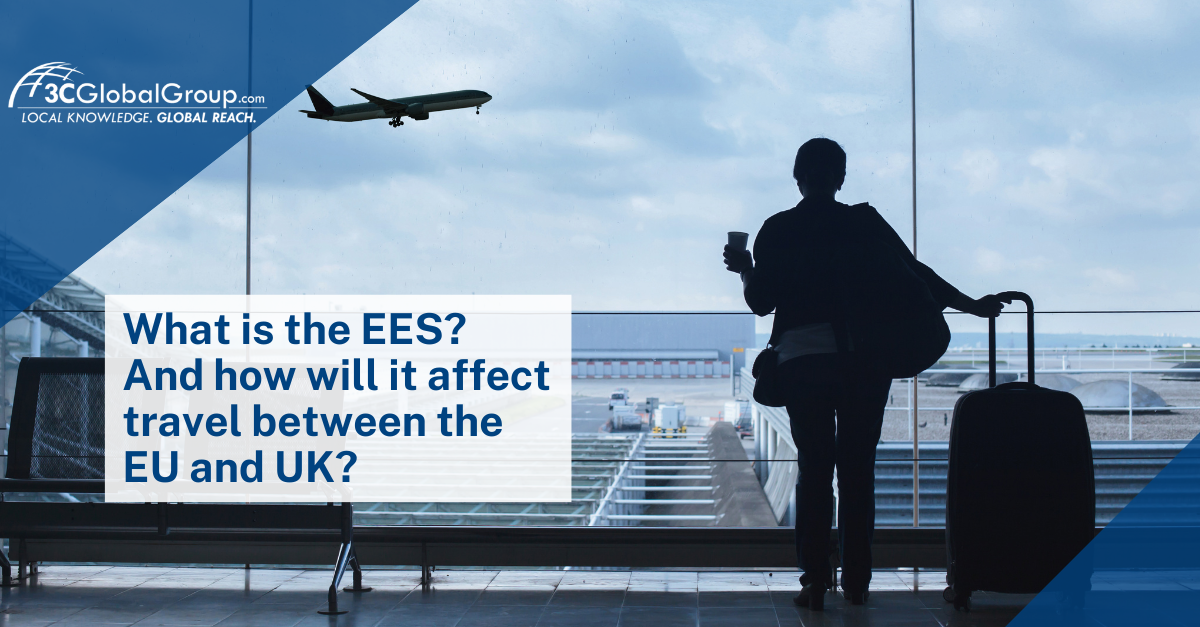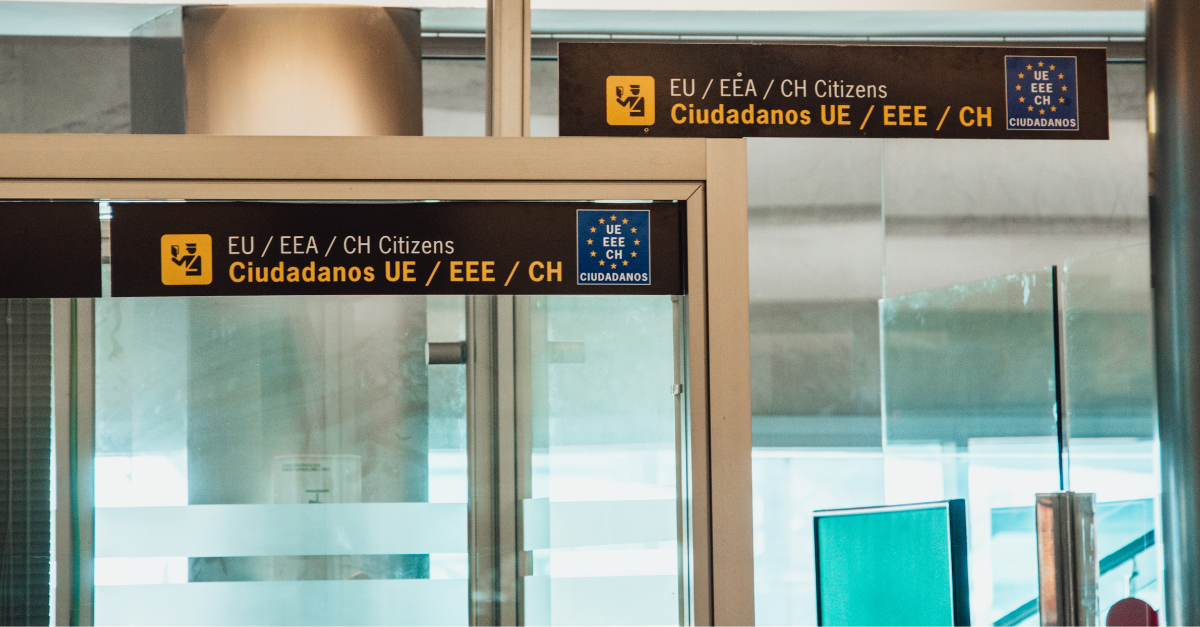
What is the EES? And how will it affect travel between the EU and UK?
Longer queues and additional entry requirements post Brexit for British Citizens and those entering the UK from the EU:
The launch date for the EU's new EES (entry/exit system) has been indicated by the UK publication The Independent, which states that the system is to be in operation by the 6th of October, 2024, as confirmed by the Eurotunnel. However, the Home Affairs Department of the EU Commission has not yet confirmed this date. Due to multiple setbacks, this system is later than the initial proposed launch, which was indicated to become effective in 2022. The suggested date of introduction will come as pleasant news to the French government, who previously expressed that they would have liked the EES to be introduced after the Paris Olympics, which occur this summer between July and August 2024. Increased measures, including fingerprint registration and photo ID in accompaniment with a person's passport on arrival to the EU, are some of the steps to be introduced.
What is the EES, and what are the new measures being introduced by this system?
The EES digital system will track citizens from non-EU territories entering and leaving EU countries. As mentioned previously, the system was initially set to launch in 2022. However, it is now projected to launch in October 2024. The system will help enforce the new Brexit rules that UK passport holders can only stay in EU/ Schengen member countries for up to 90 days in a 180-day period. The EES will monitor this by keeping track of the days used by tallying the number of times a passport is used at the border and will detect those who exceed their allowance or are refused entry. The system will gather personal information such as name, travel document type, biometric data, and entry/exit dates to enforce the current regulations around non-EU citizens travelling through the EU. The EES digital system will also work with ETIAS, the visa waiver required for travelling to Europe.

What countries will use this system?
It has been reported that 25 of the 27 current EU countries will Implement the Entry-Exit System. The EES gates will be in operation at all applicable airports. In the UK, travellers will see the EES system checks in process at Eurostat, Eurotunnel, the Port of Dover, and all applicable travel ports. Non-Schengen countries like Cyprus and Ireland will proceed with the current manual checks. Such manual checks will continue in some non-EU countries in the Schengen area, such as Lichenstein, Norway and Switzerland.
Timeline and delays
The EES has been delayed a number of times, as we mentioned previously. Many challenges have presented themselves for those working on the system.
One of the reasons that was referenced for the delays was missed deadlines by those contracted to work on developing the EES. An essential requirement was that EES barriers be constructed across all relevant travel ports and borders in the applicable areas.
Other factors emerged as the system roll-out was continuously delayed. As previously mentioned France requested that the system be postponed until after the Summer Olympics in 2024 so that travel delays arising from the system could be avoided and would not impact those travelling to the various sporting events that are due to take place.
Impact on Travel
The new EES system will likely bring about many changes for Britons, particularly when travelling to the EU and Schengen area. The system's purpose is to streamline entry to the EU for those from the UK by reducing the need for stamping passports and making passport control easier. However, the initial rollout is not expected to come without issues.
ITV news recently reported that Ashford council in the UK have warned about queues of up to 14 hours at the port of Dover, which could negatively impact surrounding roads and interfere with access to the Eurotunnel. It has been suggested that this negative impact could affect staff working there.
Potential delays have also been flagged for the Eurostar terminals, Eurotunnel terminals and other ports that cars and other motor vehicles travel through, as the time to process individuals and their vehicles would be lengthy compared to current systems.
In addition, airlines have also had their say with regards to potential disruptions. A joint statement from organisations representing airlines, such as the European Regions Airline Association (ERA), the European Region of Airports Council International (ACI), the International Air Transport Association (IATA), and Airlines for Europe (A4E) has stated, "The EES will be a game changer for how the EU's borders are managed. There are, however, a number of issues which must be resolved to ensure a smooth roll out and operation of the new system so that air passengers do not face disruptions,".
Increased Preparations
Following the introduction of the EES, its connected system, the European Travel Information Authorisation System (ETIAS), will be implemented in 2025.
The ETIAS, which was rumoured to initially come into operation in November 2023, will now be implemented in the first half of 2025 as per the timeline published by the official EU website. Once the ETIAS system is operational, travellers from non-EU countries can apply for electronic travel authorisation by paying a fee of €7 through an online application before their trip. The approved travel authorisation will be electronically linked to their passport and remain valid for three years. This system will bear some resemblance to the USA’s ESTA tourist visa.
Those from non-EU countries working within the EU/Schengen area should adhere to visa requirements. Citizens from certain non-EU nations may be able to avail of a 90-day visa exemption for the Schengen area. It is essential that non-EU citizens abide by the visa regulations and do not overstay the 90-day visa exemption period, or they will face penalties ranging from fines to deportation. With the new entry-exit system
Additional Considerations
Another question on many people's minds is how this new system will affect Ireland. The Republic of Ireland, while not a member of the Schengen Zone, is a member of the EU and has been since joining in 1973. The border between the Republic of Ireland and the UK territory of Northern Ireland has been a hotly discussed topic since Brexit passed in 2016. When tabled in the UK's House of Lords in October 2022, the question was asked whether the system would be in place on the border between the Republic of Ireland, which is a member of the EU, and Northern Ireland, which is in the UK. Lord Ahmad of Wimbledon answered, "As the Republic of Ireland is not part of the Schengen Area, EES will not apply to travel between the UK and the Republic of Ireland." It is important to note that UK citizens will not be subject to EES in Ireland or Cyprus as neither of these countries is in the Schengen zone and, instead, will be subject to manual checks at relevant ports and airports.
In Conclusion
The new EES system is set to change how people travel to and from non-EU nations and the EU. While it aims to streamline entry to the EU for those from the UK and other non-EU countries, it is also likely to cause delays and queues at various travel ports and borders. The EES will change how the EU's borders are managed, but there are still issues that need to be resolved to ensure a smooth roll-out and operation of the new system. With the launch date set for October 2024, people travelling to and from the UK and the EU need to be prepared for the additional entry requirements and potential delays that may arise.
If you are an international contractor from a non-EU nation working or planning on working in the EU or Schengen area, be sure to contact our knowledgeable team to get any advice on visa requirements. At 3C Global, we are on hand to assist with multiple aspects of international contracting, from immigration-related queries, employment structures, in-country accounting services, invoicing, insurance and much more. Contact us today to get started!


